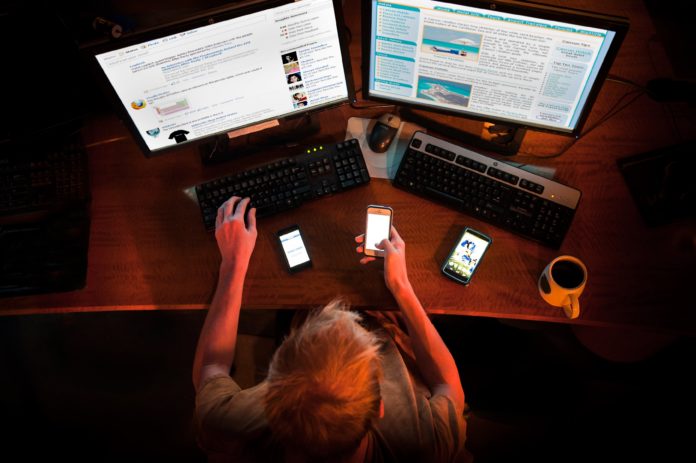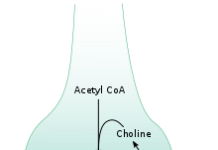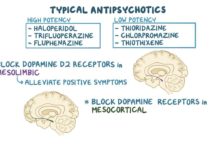Many of us know that feeling: your eyes are glazed over, your back is hunched, you’re staring at a screen and you just can’t seem to stop. If you spend so much time online — on a phone, computer, gaming platform, or other device — that it negatively affects your health, job, finances, or relationships, could that be considered an addiction?
Experts debate whether you can be addicted to the internet in the same way you can be addicted to substances. The term itself — internet addiction or internet addiction disorder — is controversial and is not currently listed in the American Psychiatric Association's Diagnostic and Statistical Manual of Mental Disorders, Fifth Edition (DSM-5), the guide that practitioners use in diagnosing mental health conditions. Still, although it can be difficult to draw a distinction between addiction and problematic use of the internet, the compulsion to be online is increasingly becoming a recognized concern.
Whether “internet addiction” constitutes a mental health disorder, excessive internet use clearly encourages unhealthy behaviors — often in the same way that recognized addictions do. If you’re concerned that you’re overdoing it, here are the signs to look for, and ways to help manage being online.
RELATED: What Is Gaming Disorder and Should You Be Worried About It?
Withdrawal Symptoms
How Is This Condition Diagnosed?
- Are you preoccupied with using the internet?
- Are you unable to resist your desire to use the internet?
- Do you have to use the internet for certain amounts of time in order to feel satisfied? And is that amount of time increasing?
- Do you try to decrease your online time over and over again, only to fail?
- When you can't use the internet, do you find yourself in a bad mood, anxious, or irritable?
- Do you stay online for longer periods of time than you mean to?
- Have you hidden from others the amount of time you spend online?
- Do you have any problems with your school or job performance due to your internet use?
- Has your internet use created relationship problems with family or friends?
Prevention
- Take breaks. (For every 45 minutes you’re online, go offline for 15 minutes.)
- In your free time, engage in activities that are physically intense or require enough concentration to distract you from thinking about going online.
- Keep your smart phone or tablet at home when you leave the house.
- Maintain a log of any internet use that isn’t related to school or work and see if you notice patterns. Are you going online to relieve boredom, or feelings of loneliness?
- Keep a list of things that you enjoy doing (or that you need to do) that don’t involve being online. When tempted to go online, choose an activity from your list instead.
Research and Statistics: How Common Is Excessive Internet Use?
Resources We Love
NetAddiction
Find information on treatment, recovery, and other educational resources at this website from The Center for Internet Addiction, founded in 1995 by Kimberly S. Young, a psychologist and noted researcher on the condition.
Books
Need a good way to get offline? Pick up a book! Here are two thought-provoking works on the subject:
Tech Stress: How Technology is Hijacking Our Lives, Strategies for Coping, and Pragmatic Ergonomics by Erik Peper, PhD, Richard Harvey, PhD, and Nancy Faass, offers practical tools and strategies to keep digital life from damaging your real life.
Irresistible: The Rise of Addictive Technology and the Business of Keeping Us Hooked by Adam Alter, a professor of psychology and marketing at New York University, looks at the rise of behavioral addiction and why it's so hard to resist being online.
Editorial Sources and Fact-Checking
- Addictive Behaviors: Gaming Disorders. World Health Organization. September 14, 2018.
- Cash H, Rae CD, Steel AH, Winkler A. Internet Addiction: A Brief Summary of Research and Practice. Current Psychiatry Reviews. November 2012.
- Computer/Internet Addiction Symptoms, Causes, and Effects. PsychGuides.
- Internet Addiction. GoodTherapy. September 9, 2019.
- Risky Business: Internet Addiction. Mental Health America.
- Paik A, Oh D, Kim D. A Case of Withdrawal Psychosis From Internet Addiction Disorder. Psychiatry Investigation. April 11, 2014.
- Ho RC, Zhang MW, et al. The Association Between Internet Addiction and Psychiatric Co-Morbidity: A Meta-Analysis. BMC Psychiatry. June 20, 2014.
- Young K. Internet Addiction Test (PDF).
- Young K. Treatment Outcomes Using CBT-IA with Internet-Addicted Patients. Journal of Behavioral Addictions. December 13, 2013.
- Lukawski K, Rusek M, Czuczwar SJ. Can Pharmacotherapy Play a Role in Treating Internet Addiction Disorder? Expert Opinion on Pharmacotherapy. May 6, 2019.
- Li S, Wu Q, Tang C, et al. Exercise-Based Interventions for Internet Addiction: Neurobiological and Neuropsychological Evidence. Frontiers in Psychology. June 25, 2020.
- Primack B, Shensa A, Sidani JE, et al. Temporal Associations Between Social Media Use and Depression. American Journal of Preventive Medicine. December 10, 2020.
- Weinstein A, Lejoyeux M. Internet Addiction or Excessive Internet Use. The American Journal of Drug and Alcohol Abuse. June 15, 2010.
- Perrin A, Atske S. About Three in Ten U.S. Adults Say They Are ‘Almost Constantly’ Online. Pew Research Center. March 26, 2021.
- Sullivan M. Hooked on the Internet, South Korean Teens Go Into Detox. National Public Radio. August 13, 2019.
- Sun Y, Li Y, Bao Y, et al. Brief Report: Increased Addictive Internet and Substance Use Behavior During the COVID-19 Pandemic in China. The American Journal on Addictions. June 4, 2020.













































